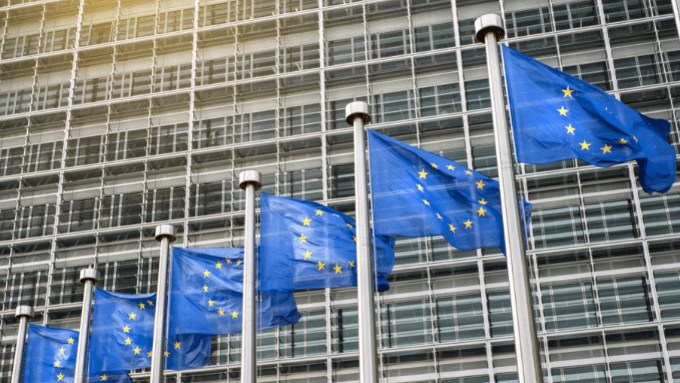The Turkish Competition Board Decides About the Scope of Legal Professional Privilege
Introduction
Certain information and documents obtained during the investigations of the Competition Board (“Board”) may be based on the attorney-client relationship. The extent of the information and documents based on an attorney-client relationship that is protected within the framework of the confidentiality principle is important. This article explains the concept of legal professional privilege under Turkish law, and reviews two significant decisions by the Board in this regard.
Legal Professional Privilege under Turkish Law
In order to have an overview of the concept of legal professional privilege and the legal protection that it brings with it, we should first consider the relevant provisions of the applicable laws and regulations under Turkish law.
Pursuant to Art. 130/2 of Code of Criminal Procedure No. 5271, “If the attorney, whose office is searched, or the president of the Bar, or the attorney representing him, objects to the search in respect to the items to be seized, at the end of the search, by alleging that those items are related to the professional relationship between the attorney and his client, then those items shall be placed in a separate envelope or a package and be sealed by the present individuals and, in the investigation phase, the judge of peace in criminal matters, or the judge or the Court in the prosecution phase, will render the necessary decision on this matter.”
Art. 36 of Attorneyship Law No. 1136 reads that: “Attorneys are prohibited from disclosing information that has been entrusted to them, or that come to light in the course of performing their duties, both as attorneys, and as members of the Union of Bar Associations of Turkey and various bodies of bar associations.”
In accordance with the above-stated legal provisions, there is no clear view as to whether or not ultimate protection is granted in the attorney-client relationship.
Competition Law Practice Including Request for Information and On-Site Inspection
Legal professional privilege has significance in relation to the practice of the Board under Turkish law. As per Art. 14 of the Act on the Protection of Competition No. 4054 (“Act No. 4054”), the Board may request any information it deems necessary from all public institutions and organizations, undertakings, and associations of undertakings, to fulfill its duties. Officials of these authorities, undertakings, and associations of undertakings, are obliged to provide the requested information within the period to be determined by the Board.
Art. 15 of Act No. 4054 stipulates that in the exercise of the duties assigned to the Board by this Act, the Board may perform examinations of undertakings, and associations of undertakings, in cases where it is deemed necessary. To this end, the Board is entitled to: (i) examine the books, any paperwork and documents of undertakings, and associations of undertakings, and make copies of the same, if needed, (ii) request written or oral statements on particular issues, and (iii) perform on-the-spot examinations with regard to any assets of undertakings. Those concerned are obliged to provide copies of information, documents, books and other instruments, as requested.
Having looked at the duties and practice of the Board, we will now explain the view of the Board in light of its two recent decisions.
Dow Decision and Enerjisa Decision
The Board’s decision dated 02.12.2015 and numbered 15-42/690-259 (“Dow Decision”)[1] underlined that some of the documents taken during on-the-spot inspections are considered within the scope of the confidentiality of written communications between attorney and client. The Dow Decision shed light on the legal professional privilege and confidentiality for approximately one year. However, recently, within the framework of another inspection, this issue has been brought up again with a different perspective.
Dow Decision
As stated in the Board’s Dow Decision, “The principle of confidentiality (principle of legal professional privilege) prohibits the forced disclosure of information provided by the enterprises or persons to their lawyers and written communications made between them when receiving legal consultancy services and protect this communication. This protection aims to release the persons’ concerns -who have received consultancy- about the forced disclosure of the information and written communications that are obtained, and direct them to provide all the information that they have in their possession to their lawyers, and to exercise their rights of defence in a real sense.”
In its Dow Decision, the Board set forth the following conditions to be fulfilled: (i) the written communications must be made between client and independent attorney (who is not bound to the client by a relationship of employment) and, (ii) written communications must be made for the purposes, and in the interests, of the client’s rights of defence. However, until the next decision, explained below, was published, the burden of proof was deemed to be on the Board to prove that these conditions were not fulfilled, and that certain documents were not afforded the protection of legal professional privilege.
Enerjisa Decision
As per the pre-inspection dated 16.11.2016 and the Memorandum dated 30.11.2016 regarding the claim that some of the documents obtained during the on-site inspection on 22.11.2016 are within the scope of attorney-client correspondence confidentiality has been discussed and decided upon, again on 06.12.2016 with the decision numbered 16-42/686-314 (“Enerjisa Decision”)[2].
It was reinstated by the Board that in accordance with the aforementioned principle of legal professional privilege, any correspondence regarding the exercise of the defense right of the client, and which takes place between attorney and client, between which there is no employment relationship, was deemed to be within the scope of the professional relationship, and benefits from such protection. The Board explained that this protection covers the correspondence with the independent attorney for the exercise of the right of defense and the documents prepared to obtain legal consultancy from the independent attorney.
It is underlined with the Enerjisa Decision that unlike the conclusion of the Dow Decision, any correspondence that aided in any violation, or concealing any continuing or future violation, and which was not related to the exercise of the defense right, cannot benefit from the legal professional privilege even if related to the pre-inspection, investigation or examination. With that regard, it has been determined that any legal opinion of an attorney provided to an enterprise as to whether a certain agreement is in breach of Act No. 4054, benefits from legal professional privilege. On the other hand, the Board expressed that any legal opinion provided by an attorney to an enterprise as to how Act No. 4054 could be breached, will not be within the scope, and under the protection, of legal professional privilege. Therefore, pursuant to the Enerjisa decision, the abovementioned legal burden of proof stated under the Dow Decision was reversed with respect to any correspondence regarding the methods of violating Act No. 4054. The Board has unanimously concluded in the Enerjisa decision that the relevant correspondence will not be within the scope of legal professional privilege, since such correspondence was not directly related to the right of defense.
Conclusion
The Dow Decision was regarded as one of the most important decisions rendered by the Board on confidentiality of written communications between attorney and client. Upon review of this decision, the Board’s perspective in terms of legal protection that is granted to written communications between attorney and client appear to be clear. However, the recent Enerjisa Decision elaborated on the Board’s approach toward legal professional privilege by highlighting that any legal opinion provided by an attorney to an enterprise as to how Act No. 4054 could be breached, will not be awarded any legal protection. According to the recent Enerjisa Decision, any such attorney and client attempting to evade the law will not benefit from the legal burden of proof on the Board. In that scenario, the legal burden of proof will fall upon the attorney and client engaged in the correspondence, if they claim that their correspondence should be deemed as privileged and confidential.
[1] Please see.
http://www.rekabet.gov.tr/File/?path=ROOT%2f1%2fDocuments%2fGerek%C3%A7eli+Kurul+Karar%C4%B1%2f15-42-690-259.pdf (Access date: 21.08.2016)
[2] http://www.rekabet.gov.tr/File/?path=ROOT%2F1%2FDocuments%2FGerek%C3%A7eli+Kurul+Karar%C4%B1%2F16-42-686-314.pdf (Access date: 21.08.2016)
All rights of this article are reserved. This article may not be used, reproduced, copied, published, distributed, or otherwise disseminated without quotation or Erdem & Erdem Law Firm's written consent. Any content created without citing the resource or Erdem & Erdem Law Firm’s written consent is regularly tracked, and legal action will be taken in case of violation.
Other Contents

The U.S. District Court for the District of Columbia (“Court”) issued its memorandum opinion (Memorandum Opinion) on November 18, 2025, in the antitrust case (“Case”) between the Federal Trade Commission (“FTC”) and Meta Platforms Inc. (“Meta”). The FTC alleges that Meta monopolized the market…

No-poach agreements, which have become one of the most prominent concepts in global competition law in recent years, are defined in the Glossary of Competition Terms as “agreements, whether direct or indirect, whereby one undertaking agrees not to make job offers to, or hire, the employees of another...

The Competition Board (“Board”) has broad powers to request information from undertakings. The legal basis for this authority is provided by Article 14 of Law No. 4054 on the Protection of Competition (“Law No. 4054”). Under this provision, the Board may request any information it deems necessary from public...

Competition authorities around the world have increasingly focused on labor market infringements under competition law, issuing new regulations and guidance recently. Notable examples include the U.S. Department of Justice and Federal Trade Commission’s joint guidance, the Japanese Fair Trade Commission’s...

Chapter 8 of the General Data Protection Regulation (“GDPR”) sets out the legal remedies available to data subjects in the event of a breach of their rights under the GDPR. Accordingly, each data subject has a right to lodge a complaint with the supervisory authority of the Member State in which they reside, work...

Mergers and acquisitions play a critical role in shaping the competitive structure of the market. Although such transactions can lead to positive outcomes such as the provision of products and services at lower prices, the development of new products and technologies, and improvements in quality, they may also...

Technology and the opportunities it brings undoubtedly play a key role in strengthening the competitiveness of market players. In this context, pricing algorithms that enable undertakings to monitor publicly available prices and optimize their own pricing strategies have become widely used, especially by digital platforms...

The Regulation on Fines to Apply in Cases of Agreements, Concerted Practices and Decisions Restricting Competition, and Abuse of Dominant Position (“Former Regulation on Fines”), which entered into force upon its publication in the Official Gazette dated February 15, 2009 and numbered 27142, was...

In the past years, the Turkish Competition Board (“Board”) has closely monitored the activities of undertakings operating in the retail sector. As a result of the Board’s record of administrative fines, horizontal type of violations in the retail sector have been highly publicized. Vertical violations such as resale price...

In recent years, numerous automobile manufacturers have announced their goals to reduce carbon emissions, with many brands setting net-zero carbon targets spanning from production processes to the lifecycle of their vehicles. While ongoing debates persist regarding the significantly higher carbon footprint of...

Under Article 15 of Law No. 4054 on the Protection of Competition (“Law No. 4054”), the Competition Board (“Board”) may conduct on-site inspections at the undertakings’ premises when it deems necessary in fulfilling the duties assigned to it. During the on-site inspection, the Board is authorized to examine all...

Agreements and information exchanges between undertakings in labor markets have recently been examined in various preliminary investigations and investigations initiated by the Turkish Competition Authority (“Authority”). Following the investigations in which some undertakings were subject to...

The Turkish Competition Board’s (Board) decision regarding the acquisition of the international road transport business line of Ekol Lojistik AŞ (Ekol) by DFDS A/S (DFDS) has been one of the most prominent transactions on the competition law agenda recently...

The Competition Board (“Board”) has broad powers to request information from undertakings. The Board’s authority to request information arises from Article 14 of the Law No. 4054 on the Protection of Competition (“Law No. 4054”). Under the relevant provision, the Board may request any information it deems...

Doğuş Otomotiv Servis ve Ticaret A.Ş. (Doğuş) applied to the Turkish Competition Authority for an exemption for the practice of recommending basic wages to be applied to sales and after-sales service employees of its authorized dealers and distributors...

Access to Instagram was blocked ex officio by the Information and Communication Technologies Authority (ICTA) as of 2.08.2024. Under Article 8 of Law No. 5651 on the Regulation of Publications on the Internet and Combating Crimes Committed Through These Publications, ICTA can issue an ex officio access...

It is well known that agreements between employer undertakings with regards to their employees, such as wage-fixing and non-poaching agreements, along with competitively sensitive information exchanges have been under the scrutiny of competition authorities all over the world, including the Turkish Competition...

Automotive is one of the sectors in which the world’s most significant investments are made. The Competition Board (“Board”) has been closely interested in the automotive sector over the years and has conducted various examinations and studies in this field...

Competition authorities around the world continue unabated to investigate competition concerns arising from data collection and processing activities of digital platforms and impose severe sanctions as a result...





The startup ecosystem in Turkey has experienced notable growth in recent years. In the last quarter of 2023, 81 startups secured a combined investment of around 60 million dollars. While the number of investments remained consistent when comparing the third quarter periods of 2022-2023, there was a decrease...

Hub and Spoke cartel is a type of violation that is not clearly defined and regulated under Law No. 4054 on the Protection of Competition (“Law No. 4054”). Decisional practices of foreign competition authorities, particularly the UK Competition and Markets Authority’s decisions (“CMA”), are instructive concerning...

The Competition Board ("Board") made an addition to its line of decisions on resale price maintenance with its decision on Sunny Elektronik Sanayi ve Ticaret A.Ş. ("Sunny") . In its decision, the Board thoroughly examined the allegations regarding Sunny's involvement in maintaining resale prices and restricting...

It is observed that the Competition Authority (“Authority”) has recently scrutinized various industries such as fast-moving consumer goods, labor market, pharmaceuticals, and cement. When the reasoned decisions of the Competition Board (“Board”) published in October are examined, it can be seen that the...

Jules Verne says, “Everything on earth has a limited lifespan, nothing that will exist forever can be created by human hands”. Perhaps change is the only constant concept in all our lives. Despite two major world wars and countless periods of crisis, humanity has been undergoing a great change and...

At the meeting of the Fédération Internationale de Football Association (“FIFA”) held on 16 December 2022, the FIFA Council approved the FIFA Football Agents Regulations (“FFAR”). In the FFAR, various amendments have been made, such as the introduction of a maximum service fee limit that football agents are...

Resale Price Maintenance (RPM) is still considered a hardcore restriction under the recently revised Vertical Block Exemption Regulation (VBER), which means that it cannot benefit from a statutory exemption under Article 101(1) TFEU, unlike certain other types of vertical agreements. However, it has been debated...

In competition law, it is important to accurately determine the concept of undertaking, especially in terms of mergers and acquisitions. Therefore, the concept of economic entity aims to reveal the economic units covered by the undertakings. The relationship between the concept of economic entity and family ties comes...

In these days when the Competition Board (“Board”) frequently imposes administrative fines for preventing on-site inspections and both the Competition Authority (“Authority”) and undertakings take legal and technical measures regarding on-site inspections, a striking development has occurred. In its decision...

Online advertising has become an important source for businesses for promoting products and services and meeting consumers, as a result of the rapid development of information technologies and increase in the use of internet. Delivering targeted messages to consumers at the right time through the digital...

Selective distribution systems refer to a type of distribution system in which suppliers commit to selling the contracted goods or services directly or indirectly to distributors selected based on specified criteria, while the distributors commit not to sell the said goods or services to unauthorized...

Fast-moving consumer goods is undoubtedly one of the sectors that the Competition Authority has been working most intensively since the COVID 19 pandemic. Among the most important developments of this period was the Sector Inquiry initiated on Fast Moving Consumer Goods (“FMCG”) Retailing...

In the decision of the Constitutional Court ("Constitutional Court" or "Court") dated 09.11.2022, numbered 2020/67 E. 2022/139 K. (the "Decision"), the annulment of certain articles of the Law Amending the Law on the Protection of Competition No. 4054 ("Law No. 7246") was requested...

In Turkish competition law, certain types of mergers and acquisitions are subject to Turkish Competition Board’s (“Board”) approval in order to gain legal validity. Pursuant to Article 7 of the Law No. 4054 on the Protection of Competition (“Law No. 4054”), the Board is competent to define mergers and acquisitions...

Recently, the Competition Board (the Board) had imposed administrative fines on banks and financial institutions for failing to respond to the request for information within the scope of a preliminary investigation.[i] The request for information that lays the groundwork for the administrative fine imposed by...

Amazon, a world-famous company, is an e-commerce company that operates the world’s largest online shopping platform. In the backstage, Amazon is a data-driven company whose retail decisions are mostly driven by automated systems, fueled by the relevant market data. That being said, Amazon has a dual...

The right to make on-site inspections is one of the Competition Board’s (“Board”) most important tools for revealing whether Law No. 4054 on the Protection of Competition (“Law No. 4054”) has been violated. The effective use of this authority is quite important in terms of obtaining fruitful results from...

“Harese” is an interesting Arabic word. There is a thorn that camels love very much in the desert. The camel eats the thorn with great greed. So much so that, its mouth bleeds as it eats, but it doesn't stop eating. The taste of the thorn is mixed with the salty taste of its own blood. This mixed taste drives the camel...

Turkey’s leading pay television service provider, Krea İçerik Hizmetleri ve Prodüksiyon A.Ş. (“Digiturk”), is frequently the subject of complaints made to the Competition Authority (“Authority”). In fact, the Competition Board (“Board”) issues a new decision about Digiturk almost every year. In these decisions...

The French Competition Authority (Autorité de la Concurrence), within the scope of the competition law proceeding initiated upon the complaint of Criteo SA (“Criteo”), accepted the commitments proposed by Meta Platforms Inc., Meta Platforms Ireland Ltd., and Facebook France...

While the scope of Competition Board’s (“Board”) power to conduct on-site inspections has increased with the introduction of Guidelines on Examination of Digital Data during On-site Inspections (“Guidelines”), nowadays the amount of monetary fines imposed on undertakings continue to...

The hub and spoke cartel, which is a relatively new type of violation in terms of Turkish competition law, is defined as the indirect exchange of information between two independent undertakings which are horizontal competitors on the supplier or retailer level, through another undertaking...

The settlement mechanism has only recently been introduced to Turkish competition law practice. It entered into force with the amendment made to the Law on the Protection of Competition (“Law”) numbered 4054 on 16.06.2020, and has been in effect for less than two years. In this relatively...

Due to their increasing share in the economy and rapid growth rate, e-marketplace platforms have come under the increasing scrutiny of the Turkish Competition Authority (“Authority”) as well as many competition authorities around the world...

Pursuant to the Amendment Communiqué Concerning the Mergers and Acquisitions Requiring the Competition Board’s Approval (“Amending Communiqué”) published in the Official Gazette dated March 4th, 2022 and numbered 31768, certain amendments have been introduced...

The Competition Board (“Board”) has recently published a reasoned decision in which it evaluated BSH Ev Aletleri Sanayi ve Ticaret A.Ş.’s (“BSH”) request for negative clearance or exemption with regard to its practice of prohibiting authorized dealers from making sales through online marketplaces...

Shahmaran, a Mesopotamian myth, is believed to take place in Tarsus. According to the myth, the shah of snakes is the immortal and omniscient "Shahmaran." Shahmaran is described as a beautiful woman living in her cave with her snakes...


During the COVID-19 pandemic, competitive concerns about the pricing behavior of chain markets, manufacturers, and wholesalers engaged in the retail trade of food and cleaning supplies led to an investigation by...

When the past decisions and the recent decisions of the Competition Board (“Board”) are examined, a significant increase can be observed in the number of decisions where the Board found hindrance or obstruction of on-site inspections. This situation shows that...

The European Commission began investigating the collusive behavior of Credit Suisse, UBS, Barclays, RBS, and HSBC in the Foreign Exchange (forex) spot trading market in 2019. With the recent press release dated 02.12.2021, the Commission announced that the case is now closed...


Digitalization, in particular, necessitates the rewriting of competition law rules. Competition law is at the center all questions regarding e-commerce and digital platforms. The aforementioned platforms, which have become prominent due to innovations in...
















































